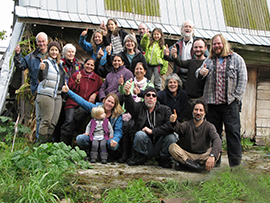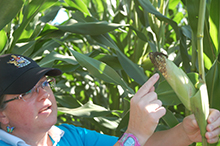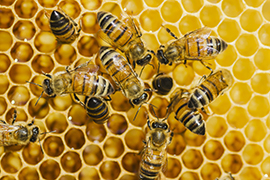KELOWNA – FarmFolk/ CityFolk’s Foodlands Trust project has taken another significant step forward with the formal registration and approval of the Foodlands Co-operative of BC.
“We have registered the trust as a co-operative,” says Heather Pritchard, who has led the initiative since its inception. “That means we have a legal structure and the co-op is going to work towards becoming a charitable organization. Getting charitable status will make us a stand-alone organization able to bring land into trust and provide charitable tax receipts.”
The Foodlands Cooperative is the culmination of the experience gathered by Heather Pritchard from FarmFolk CityFolk and Hanna Whitman from UBC Centre for Sustainable Farming over a decade of working with community farms.
“In our experience and research, we found the biggest barriers to new farmers is not so much that there wasn’t the land but that they didn’t have security on it,” says Pritchard.
“It’s very difficult, if land is privately owned, for people to have long-term tenure and access on one hand. On the other hand, there is a whole generation of older farmers who may not want to leave their farms and who may not be in a position to have to sell their land but where, if we had a mechanism to put it in the land trust, we could then make it available to new people getting into farming.”
That vision drove the development of the Foodlands Trust, first as an initiative of FarmFolk CityFolk, and now as a co-op. The trust’s founding members — FarmFolk CityFolk Society, Vancity Community Foundation, Fraser Common Farm Co-operative and the BC Association of Farmers’ Markets — will form the first board of directors in partnership with several advisory members.
The new structure doesn’t change the trust’s objectives: working to secure, protect and steward land for the promotion of sustainable agriculture and local food production while recognizing, respecting and including Indigenous food systems.
However, the new structure allows the organization to hold lands in trust, with the vision of having locally based organizations or co-operatives manage production on the land itself. A pilot of the model ran successfully at Lohbrunner Community Farm Co-operative in Saanich earlier this year.
Ceres Circle Farm, a 36.8-acre sheep farm in Kelowna, donated by Sue Haley, will be the new organization’s first property. The transfer is still in negotiation but when it is complete, the Foodlands Cooperative will hold the land and a local community group in Kelowna will manage it.
“Preserving farmland is very important and I don’t feel the ALR has been sufficient to do that. A lot of land has been removed from the reserve, particularly in Central Okanagan. There’s also quite a lot of land in the reserve in this area that is not being farmed,” says Sue Haley, who raised sheep organically on Ceres Circle Farm until last spring. “I wanted to try and make it possible for people to keep farming on this piece of land that I’ve had in my possession for a long time.”
Foodlands Co-operative is actively looking for an experienced sheep farmer to be the anchor farm business on Ceres, and for other farmers to share to land. There is room for other animals, a small orchard, a market garden and a natural area full of wild food and medicine. The farm also includes a provincially licensed abattoir and a three-bedroom house.
“Basically, I think this is an important gap that the Foodlands Co-operative is trying to fill,” says Haley. “The idea of co-operative farms is something that I would like to see encouraged, although it’s quite a different way of doing things from traditional farming. But we need some new ways of doing things because obviously the old ways are breaking down.”


 Buggy season
Buggy season